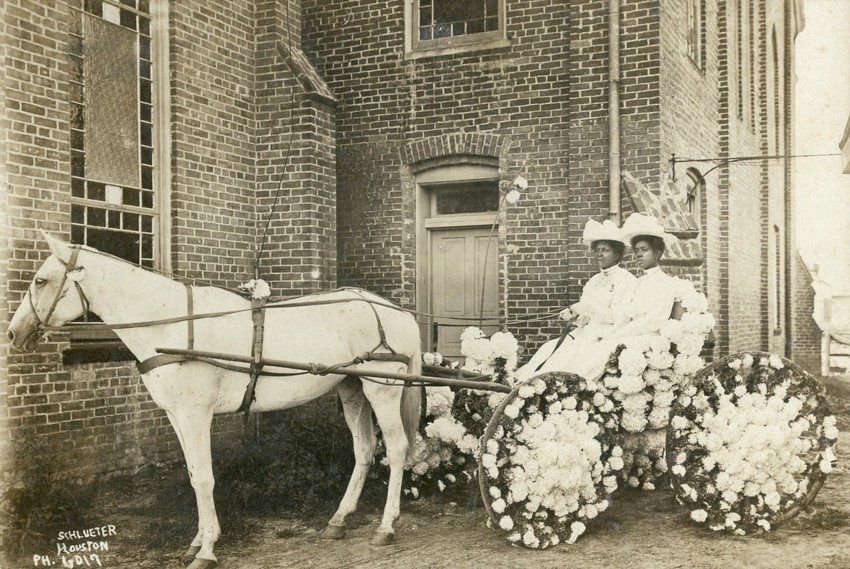23 June 2021
Juneteenth Holiday Is An Opportunity to Reflect On Past and Future
By Felicia Campbell
[3-minute read]
 Image: Houston Public Library
Image: Houston Public Library
"We are hopeful that many more people in our UC San Diego community will take the opportunity to learn about Juneteenth and explore the history and meaning of this annual event," said Pradeep K. Khosla, UC San Diego Chancellor, about the holiday also known as Freedom Day, Emancipation Day or Jubilee.
First celebrated in 1866 in Texas, Juneteenth is one of the United States' oldest celebrations of the abolition of slavery. When the Emancipation Proclamation became official on January 1, 1863, making slavery illegal across the country, many enslaved people lived in states still at war with the Union or where the news of the change in the law hadn't reached them. The proclamation finally reached Texas by way of Union Major General Gordon Granger, who arrived on June 19, 1865, and declared that there was now "absolute equality of rights and rights of property between former masters and slaves," drastically changing the lives of the over 250,000 enslaved people in the state.
Former slave owners used oppressive Jim Crow laws to lash out in the years to come, making the tradition of Juneteenth all the more important as a way to assert and celebrate the freedom of Black Americans peacefully. On the first Juneteenth celebration, freed people faced new segregation laws that prevented them from using any public parks or spaces, but the Black community persevered. Led by Jack Yates, a Baptist minister, and Elias Dibble, a Methodist minister, residents collected donations until they had enough money to purchase ten acres on the city's southern edge. That land became known as Emancipation Park and has been the site of Houston's Juneteenth celebrations since 1867.
During the dark era of Jim Crow, celebrations weren't as well attended. However, when Martin Luther King Jr. planned the Poor People's March to coincide with Juneteenth in 1968, he shared the tradition with attendees from all over the country. Juneteenth was not only revived but grew into a holiday celebrated by communities all over the nation.
Texas was the first state to officially recognize Juneteenth, declaring it a state holiday in 1980. And on June 17, 2021, President Biden declared Juneteenth a federal holiday. University of Calfornia President, Michael V. Drake, MD, followed suit, noting, "Starting in 2022, we will celebrate the Juneteenth holiday according to the federal calendar."
The new campus holiday is an opportunity for all students and staff to reflect on the past and seek inspiration for a new kind of future.
"We encourage everyone at UC San Diego to consider how our UC San Diego commitment to equity, diversity and inclusion can help unite our diverse society to explore and find solutions to end systemic racism and anti-blackness," said Becky R. Petitt, Vice Chancellor for Equity, Diversity, and Inclusion.
To assist in this mission, UC San Diego's Office for Equity, Diversity, and Inclusion has developed the Strategic Plan for Inclusive Excellence, which includes a number of important resources such as the Chancellor's 21-Day Antiracism Challenge along with an allyship initiative aimed at educating and supporting white campus community members in continuing anti-racism work.
"I invite you to join me in reflecting on our nation's history, the horrors of centuries of bondage, and the difficult road from liberation to equality," President Drake added. "Let us resolve to build a future representing and lifted up by our ideals, our values, and our best selves."